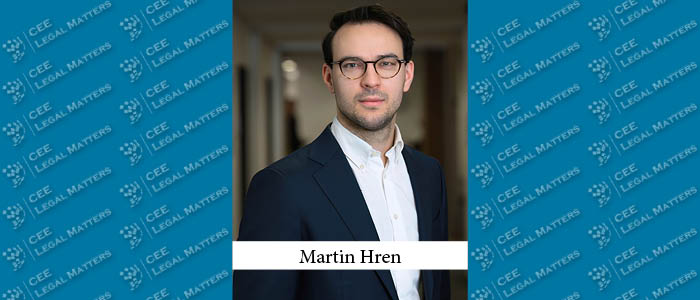Impactful legal updates are on the ticket in Croatia according to NLaw Managing Partner Martin Hren, and the stage is set for changes that could significantly bolster the Adriatic country's start-up ecosystem and IT sector, with more work needed to support renewable energy projects and new technologies.
"Starting on January 1, 2024, Croatia has made a pivotal change regarding Employee Stock Ownership Plans in limited liability companies," Hren begins. "Previously, ESOPs were not as enticing for companies and employers due to unfavorable tax schemes, which included additional taxes on top of the social contributions when employees cashed them out. Now, the tax scheme has been aligned with that of joint-stock companies, significantly reducing the tax burden on employees when they exercise their ESOPs." According to him, this adjustment is a major leap forward in making Croatia a more start-up-friendly environment.
And, speaking of start-ups, Hren believes this legislative update to be a veritable game-changer. "Start-ups primarily aim to attract talent through ESOP schemes, and the previous tax structure was a considerable deterrent. With the new, more favorable tax treatment, start-ups can now offer ESOPs as a compelling incentive to prospective employees," he explains. Moreover, he feels that this aligns Croatia’s start-up scene more closely with global standards, "where ESOPs are a common practice to motivate and retain key employees."
Moreover, Hren posits that this update will "foster substantial growth in the IT sector and the broader start-up ecosystem in Croatia. While 2023 was somewhat challenging for the IT sector, marked by stagnation and a slowdown reflective of the global economic context, this change in ESOP regulation, combined with ongoing engagement with venture capital funds in both Croatia and Slovenia, is expected to rejuvenate the sector," he opines. "There’s a temporary pause in VC activity, with many awaiting the funds from the Croatian Venture Capital Initiative 2. This legal update could catalyze increased activity and investment, propelling the Croatian start-up ecosystem forward," he further explains.
Aside from the start-ups, there are other sectors poised to benefit from the forthcoming legal updates. "The energy sector, especially renewable projects, is currently experiencing delays due to the non-implementation of regulatory measures," notes Hren. "Croatia has yet to adjust its legal framework to promote investments in wind, solar, and geothermal projects, which is in line with the EU's green transition objectives. This indicates promising prospects for legal practices focusing on energy matters in Croatia in the future," he says. "Additionally, developments in technology law, especially regarding blockchain, crypto, and AI, signal growing legal support needs in these areas."
Finally, having all of this in mind, Hren shares that he feels optimistic about the road ahead. "The legal landscape is adapting to support growth and innovation, and these changes, particularly around ESOPs and the energy sector, are steps in the right direction. With careful navigation and strategic investments, I believe we’ll see a resurgence in activity and innovation in the years to come," he concludes.

















